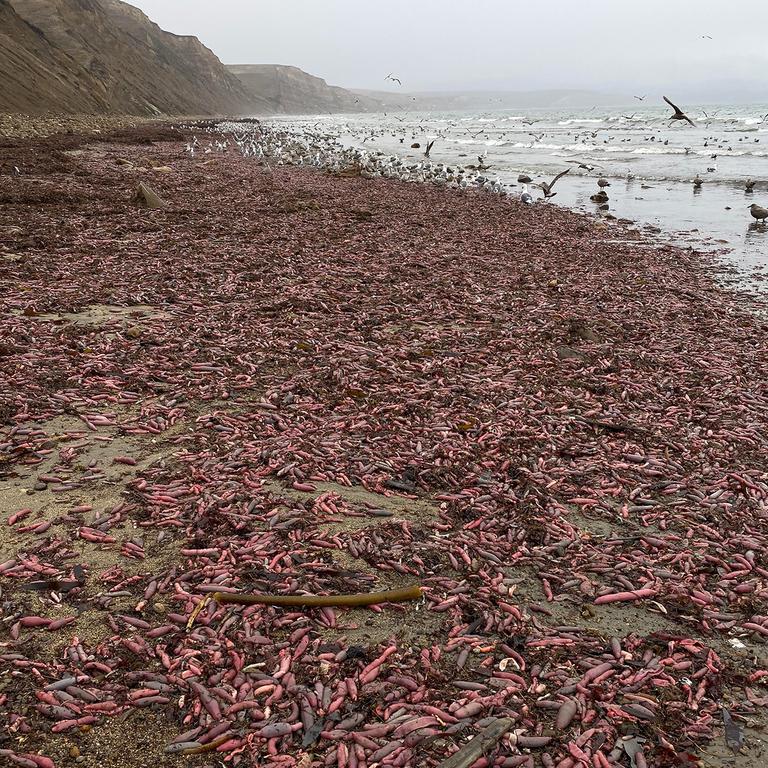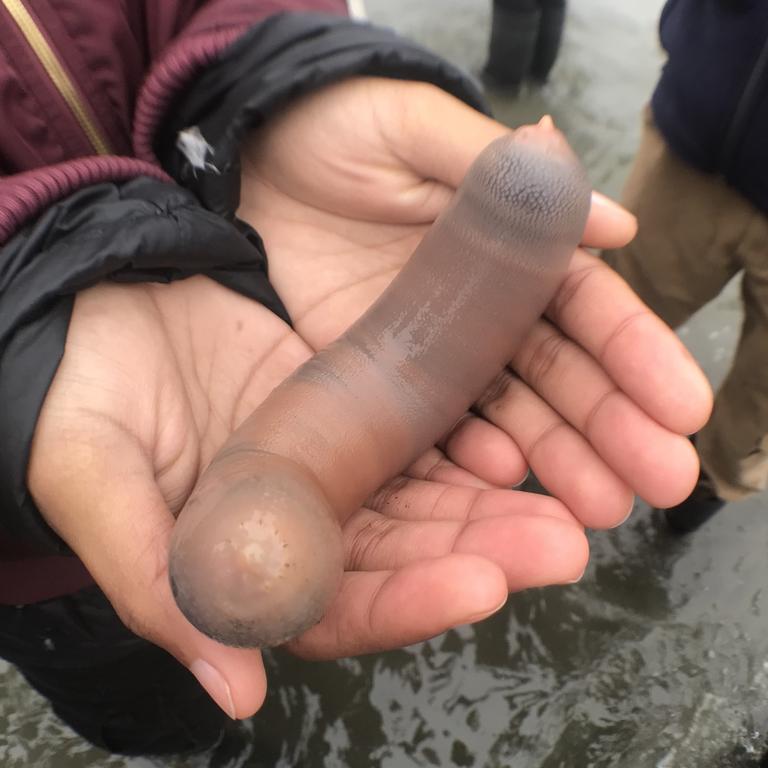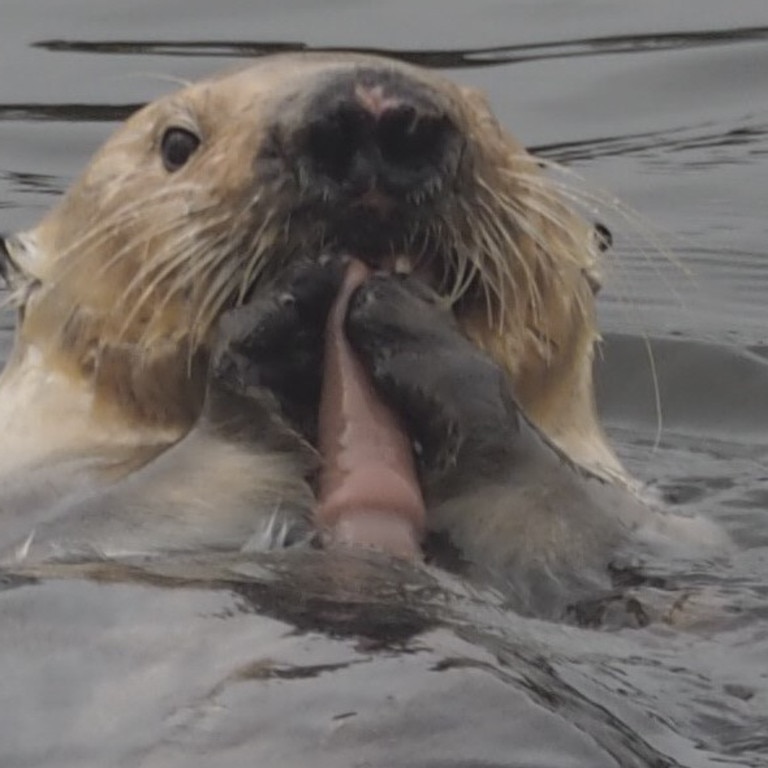Bad weather has covered a beach in a strangely shaped worm
A wild storm has washed ashore huge amounts of a strange looking sea creature, covering a beach in phallic shaped worms.
Thousands of pulsing “penis-fish” have washed up on a California beach after a storm forced them out of their underwater burrows.
These sausage-like creatures – known as the “fat innkeeper worm” or Urechis caupo – appeared on Drakes Beach, California due to bad weather last week.

A marine life expert writing for Bay Nature explained that strong storms may have forced the bulbous creatures out of their burrows and exposed to predators.
Ivan Parr said: “The same phenomenon has been reported over the years at Pajaro Dunes, Moss Landing, Bodega Bay, and Princeton Harbor.
“I’ve heard my share of imaginative theories from beachcombers, such as flotsam of a wrecked bratwurst freighter.
“In truth, these are living denizens of our beaches rudely, yet also mercifully, mostly called ‘fat innkeeper worms’.”
Parr acknowledged that the shape of this phallic fish “has some explaining to do” when a concerned reader queried why they were there.
He described how these spoonworms make U-shaped burrows under the mud or sand that it leaves behind for other creatures to move in.

This why it’s known as an “innkeeper” – although “penis-fish” is natural conclusion for those who come across them strewn all over the shoreline.
Freeloaders that cash in on the worm’s burrowing skills include clams, other worms, crabs, shrimp and even a fish called the arrow goby.
The wriggly worm uses its spatula-shaped limb for feeding and swimming in its seaside habitat, Parr explained.
He also described a sighting of the pulsating U-caupo as “an almost uniquely California experience” with the bulk of sightings occurring between Bodega Bay and Monterey.
Parr said these penis fish were the California’s “best claim for State Worm” being the sole representative in North America.
These toothless creatures have been around for a while with fossil evidence of their U-shaped burrows dating back a whopping 300 million years.
Some can live for 25 years but they have myriad threats, including humans, otters, flounders, sharks, rays and seagulls.

These worms are a delicacy in East Asia, where their two-legged predator enjoys chowing down on a penis-fish or two with a dash of salt.
Commonly eaten in South Korea, Japan and China, the fat innkeeper worm – or “gaebul” in Korean – makes for a delicious, mildly sweet meal.
People there are partial to grilling this worm (which is said to have aphrodisiac properties) and adding some salt, pepper and sesame oil seasoning.
And like many things, it’s a case of the bigger the better when it comes to penis-fish because irregular thickness can indicate lower quality.
Some images in this article have been used under Creative Commons 4.0
This article originally appeared on The Sun and was reproduced with permission.



